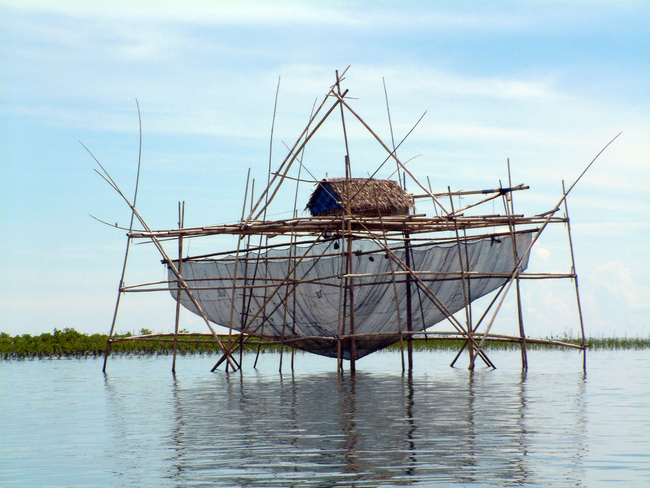The Indonesian Archipelago consists of about 17,500 islands and has a coastline of 81,000 km. The region is a centre of biodiversity with highly productive ecosystems such as coral reefs, mangroves and sea grass meadows. These ecosystems stabilize the coastlines, are repositories of significant genetic and biological information, and play a vital role in the lives of coastal population. Today the coastal ecosystems are under enormous pressure from rapid social and economic changes and many of their natural resources are under threat due to overuse and environmental degradation.
The overarching goal of the SPICE Programme is to address the scientific, social and economic issues related to the management of the Indonesian coastal ecosystems and their resources. In addition to strengthening the existing scientific data base on coastal ecosystems, the programme promotes capacity and infrastructure building in the marine sector in Indonesia and Germany. The programme is being carried out in cooperation among partners from several Indonesian and German universities and government research institutions. SPICE makes substantial inputs towards fulfilling regional and international obligations of the two countries as entailed in international conventions and treaties.
The first phase of the SPICE Programme (2003-2007) provided significant information on the structure and functioning of coastal ecosystems covering mangroves, coral reefs, coastal pelagic systems and peat swamps, and on their alterations due to human interventions. In the second phase (2007-2010), the focus on natural sciences was complemented by social science. The aims are to better understand the social dimension of coastal ecosystem changes, to analyse social-ecological dynamics and to improve the links between research and decision making.
Following two successful phases the bilateral cooperation has been continued in March 2012. For the third SPICE phase new research topics were jointly agreed by the Indonesian Steering Committee and the Indonesian and German research team as follows:
- Impacts of marine pollution on biodiversity and coastal livelihoods
- Carbon sequestration in the Indonesian Seas and its global significance
- Understanding and managing the resilience of coral reefs and associated social systems
- Terrestrial influences on mangrove ecology and sustainability of their resources
- Climate versus anthropogenic forcing of Late Holocene environmental change affecting Indonesian marine, coastal, and terrestrial ecosystems
- Potentials of ocean renewable energy in the Indonesian Seas





